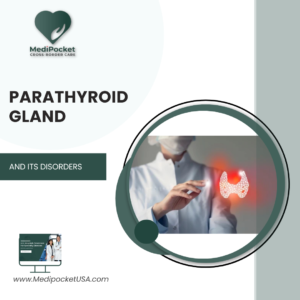Lymphoma is one of those cancers that is thought to be rare but important. Cancer cases are expected to rise from 1.4 million in 2022 to 1.57 million in 2024, according to estimates. These alarming figures prompt medical professionals to take action to reduce the number of cases and develop more advanced treatment methods.
When we hear about Lymphoma or any type of Cancer, we imagine the cancer victim’s worn-out physical characteristics. What we don’t know is how the disease can be harmful to one’s mental health.
In this blog, we will discuss how Lymphoma can affect a person’s mental health and possible prevention measures.
What is Lymphoma?
Lymphoma is a type of cancer that begins in the lymphatic system, which is an important part of the body’s immune system. It primarily affects lymphocytes, a type of white blood cell that plays an important role in immune function. Here’s a quick rundown:
Lymphoma Types:
Hodgkin Lymphoma (HL): This less common type of lymphoma is distinguished by the presence of abnormal cells known as Reed-Sternberg cells. It can affect people of all ages and has a high cure rate, particularly in the early stages.
Non-Hodgkin Lymphoma (NHL): NHL is a broad term for a variety of lymphomas with varying subtypes. It is more common than Hodgkin lymphoma and can affect adults as well as children. NHL is further classified as indolent (slow-growing) or aggressive (fast-growing).
Causes and Risk Factors
Although the exact cause of lymphoma is often unknown, several factors, including genetics, certain infections (e.g., Epstein-Barr virus), exposure to certain chemicals, and compromised immune function, may increase the risk.
Lymphoma is characterised by enlarged lymph nodes, fatigue, night sweats, unexplained weight loss, itching, and fever. These symptoms differ according to the type and stage of lymphoma.
Lymphoma is typically diagnosed through a combination of medical history evaluation, physical exams, imaging tests (such as CT scans or PET scans), and biopsy of affected lymph nodes or tissues to confirm the presence of cancerous cells.
How can Lymphoma affect Mental Health?
Hodgkin lymphoma, in particular, can have a significant impact on mental health. According to research, patients with Hodgkin lymphoma are more likely than the general population to suffer from mental health disorders. Anxiety, depression, post-traumatic stress disorder (PTSD), and substance abuse are examples of these disorders. Living with lymphoma, going through treatment, and the uncertainty of the disease can all contribute to emotional distress.
Emotional Impact: Being diagnosed with cancer, including lymphoma, can elicit a wide range of emotions, including fear, anxiety, sadness, and anger. Patients frequently struggle with the shock of the diagnosis as well as the uncertainty of their future. These feelings can be intense and overwhelming.
Treatment-related stress: Cancer treatments, such as chemotherapy, radiation therapy, and stem cell transplants, can be physically and emotionally taxing. Patients may experience unpleasant side effects like nausea, fatigue, pain, and hair loss. The anticipation of these side effects, as well as the difficulties in managing them, can cause increased stress and anxiety.
Uncertainty and Fear of Recurrence: Even after successful treatment and remission, patients frequently experience lingering anxiety about cancer recurrence. This fear can be a constant source of anxiety, causing people to be concerned about their health and the possibility of being diagnosed with cancer again.
Body Image Changes: Some lymphoma treatments can cause physical changes such as weight loss or gain, scarring, and hair loss. These changes can have a negative impact on body image and self-esteem, leading to feelings of inadequacy and depression.
Social Isolation: Lymphoma patients may experience social isolation as a result of their weakened immune system, which makes them more susceptible to infections. These fears have been heightened by the COVID-19 pandemic. Loneliness and depression can result from being isolated from friends and family.
Financial Stress: Even with insurance, the cost of cancer treatment can be substantial. Many patients and their families are stressed financially as a result of medical bills, medication costs, and time away from work. This financial stress can exacerbate anxiety and depression.
Loss and Grief: Lymphoma can cause physical disability and, in some cases, death. Coping with the illness and the possibility of losing loved ones can cause grief and mourning, which can have a significant impact on mental health.
Coping with Uncertainty: Lymphoma frequently causes uncertainty in the lives of patients and their families. Coping with the unknown, making treatment decisions, and dealing with the long-term consequences of cancer can be mentally taxing.
Psychosocial support: Many lymphoma patients and survivors require psychosocial support, such as counselling, support groups, and access to mental health professionals. These resources are critical for addressing the disease’s psychological impact.
Impact on Caregivers: The mental health issues associated with lymphoma do not only affect patients. Caregivers, who are frequently family members or friends, can experience significant stress, anxiety, and depression while providing support and witnessing their loved ones’ struggles.
In conclusion, lymphoma can have a profound and long-term impact on mental health due to the emotional toll of diagnosis and treatment, physical changes, financial stress, and the disease’s ongoing uncertainty. Recognizing these challenges and providing comprehensive support for patients and their families is critical for addressing lymphoma patients’ mental health needs.
How can you prevent Mental health while battling Cancer?
While battling lymphoma, preventing mental health issues can be difficult, but there are strategies and coping mechanisms that can help maintain emotional well-being during this difficult journey. Here’s a comprehensive guide to preventing mental health problems:
- Create a Solid Support System: Seek emotional support from friends and family. Share your concerns and feelings with them, and let them know what you require. Consider participating in a cancer support group. Connecting with others who are going through similar things can provide a sense of belonging and comprehension.
- Communication that is open:
- Open Communication: Keep open and honest communication with your medical team. Share your anxieties, fears, and emotional struggles with them. They can offer you advice and resources to help you cope.
- Counselling and psychotherapy: Consider individual or group therapy with a mental health professional who has worked with cancer patients before. Therapy can provide a safe environment in which to explore your emotions and develop coping strategies.
- Meditation and mindfulness: Reduce stress and anxiety by practicing mindfulness and meditation. These techniques can help you stay in the present moment and reduce your anxiety about the future.
- Physical Exercise: If your health permits, engage in physical activity. Endorphins, which are natural mood lifters, are released during exercise. Even simple activities such as walking can be beneficial.
- Hydration and nutrition: Eat a well-balanced diet and stay hydrated. Proper nutrition can help you feel better physically and emotionally.
- Hygiene of Sleep: Make good sleep hygiene a priority. Create a relaxing sleep environment by establishing a bedtime routine. Sleep is essential for emotional control.
- Reduce Information Overload: While it’s important to stay informed about your condition, don’t go overboard with online research or seek constant reassurance from medical sources. Set aside specific times for gathering medical information.
- Creatively Express Yourself: Express your emotions through creative outlets such as art, writing, or music. Creative activities can be therapeutic and provide an outlet for emotions.
- Set attainable goals: Set attainable goals for yourself, whether they are treatment-related, daily routine-related, or personal aspirations. Achieving these objectives can give you a sense of accomplishment.
- A Healthy Way of Life: Maintain a balanced lifestyle that includes downtime, hobbies, and socialising. Participating in activities that you enjoy can boost your mood and outlook.
- Mind-Body Techniques: Investigate mind-body practices like yoga or tai chi. These practices can help you relax, reduce stress, and improve your mental clarity.
- Seek Professional Assistance When Necessary: If you are experiencing persistent symptoms of anxiety, depression, or other mental health issues, don’t be afraid to seek professional help. Counsellors and therapists can provide tailored strategies and interventions.
Remember that mental health issues are common in cancer patients, and that seeking help is a sign of strength, not weakness. MediPocket USA’s healthcare team, mental health professionals, and loved ones are all available to help you maintain your emotional well-being while fighting lymphoma. Because everyone’s journey is different, find the strategies and approaches that work best for you.
World’s Best Lymphoma Treatment








